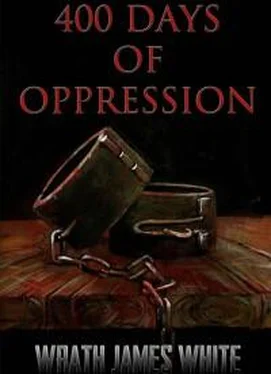“These new laws separating blacks from whites were known as “Jim Crow Laws,” a derogatory epithet for blacks that came from a minstrel routine ( Jump Jim Crow ) performed beginning in 1828 by its author, Thomas Dartmouth (“Daddy”) Rice, along with many imitators. Jim Crow laws spread throughout the South and quickly became a way of life. In South Carolina, many businesses would not allow black and white employees to work in the same room, enter through the same door, or even gaze out of the same window. Many industries wouldn’t hire blacks at all. Unions passed rules explicitly excluding black workers from joining, which then excluded them from union jobs, beginning a cycle of chronic unemployment and economic disenfranchisement, which continues to this day.
“In Richmond, blacks could not live on the same street as whites. By 1914, Texas had six entire towns that excluded black residents. In Mobile, Alabama, blacks could not leave their homes after 10 p.m. “Whites Only” or “Colored” signs became common sights throughout the South, separating pools, bathrooms, restaurants, theaters, ticket windows, drinking fountains, even entrances and exits. There were separate parks, phone booths, prisons, hospitals, orphanages, churches, schools, and colleges. Black and white students had to use separate sets of textbooks. Some jurisdictions wouldn’t even allow the books to be stored together. Courts kept separate bibles for swearing in a witness: one for black witnesses and one for whites.
“States in the North did not go unaffected by Jim Crow. Discrimination spread like a cancer. Unwritten rules barred blacks from white jobs in New York and kept them out of white stores in Los Angeles. In 1915, the Ku Klux Klan was revived and lynchings and cross-burnings ‘punished’ blacks who disobeyed Jim Crow laws, using the fear of violence to keep blacks ‘in their place.’”
I shook my head. Again, joy was replaced by pain, elation with disappointment. Hours ago we were picking out wedding rings and now my life, my world, was about to be turned upside down again,
“This is Shakeela Geeti. She is a Mehndi artist.”
“Mehndi?”
“A tattooist. She does henna tattoos.”
“Henna tattoos?”
I looked at the woman in the colorful saree. Then at Angela who smiled at me. None of the hostility she’d shown to me when we first met, before we’d fucked, was reflected in her expression. What I saw there was something new, something worse...pity.
“Who’s getting the tattoo?”
Kenyatta smiled. It was a horrible sight. There was nothing warm in the expression. For the first time I recognized a hint of mischief and malevolence. He was getting off on this.
“You are. On your face.”
“My face? Why?”
“How else will you learn about discrimination? You want to know what it’s like for black people to walk into a job interview, apply for a bank loan, walk into a department store, and be judged, dismissed, despised the minute they look at your face? Your face will make you a second-class citizen just like we were for seventy years following the Emancipation Proclamation, free but not free, emancipated but still oppressed. Everywhere you go, people will take one look at you and attach half a dozen negative stereotypes to you.”
I shook my head. Tears wept from my eyes.
“Come on, Kenyatta. No. I-I can’t do that.”
The whips. The chains. The hard labor. The terrible food. The pain. I could endure it all again if I needed to, but going out in public to be looked down upon, ridiculed, rejected. It was too much. It had only been a few days since I was given my freedom and now this new humiliation… It was too much.
“You want to quit?”
“No...but...not this. Come on, Kenyatta. This is too much. I can’t do it.”
“You know what to say if you want it to end.”
I looked at him, at Angela, at the Indian woman, and the thought crossed my mind. The word crossed my mind.
“Why are my bags packed?”
“You’re free. You can’t live in the Master’s house anymore. You have to get a job and find your own apartment.”
I dropped my head and shook it in disbelief.
“With a fucking tattoo on my face?” I practically screamed the words at him. I was hysterical. This was just too much.
Kenyatta was still smiling when he answered.
“Yes. With a fucking tattoo on your face. It isn’t permanent. It’ll fade away in two or three weeks. I promise.”
I felt like I was going to throw up. Everything we’d done so far had been private, between him and I and other people in the BDSM scene. People who would understand. Going out in public like this was something I hadn’t counted on. I tried to imagine walking into a job interview with my face covered in tattoos. There was no way. How would I support myself?
As if in response to my unspoken question, Kenyatta read from the book. I wanted to snatch it out of his hands and rip it to shreds.
“The 13 thAmendment meant freedom for four million African-American slaves. However, faced with overwhelming discrimination, the majority of them soon found themselves poor and unemployed. For African Americans, finding employment in Northern cities was a difficult and sometimes impossible task. Discriminatory labor practices, demanded by European immigrants, often denied African Americans skilled jobs. Southern migrants were particularly disadvantaged since they were more likely than Northern-born blacks to have job skills. Many freed slaves were compelled to abandon their trades due to unrelenting racial prejudice and take menial, low-paying, unskilled jobs. Philadelphia employment records reveal that during this period, less than two-thirds of [black workers] who had trades followed them.
“In New York City, officials reneged on their promise to ‘issue licenses to all regardless of race’ and buckled under pressure from white workers to exclude African Americans from jobs requiring special permits. One foreign visitor reported seeing almost no black skilled workers in the North. The few exceptions were ‘one or two employed as printers, one blacksmith and one shoemaker.’ African Americans found it almost impossible to obtain licenses, denying them important opportunities to become small businessmen and elevate their economic status. Many former slaves were forced to go back to the plantations from which they were freed and work for their former owners in agricultural jobs for very little compensation.
“In an attempt to earn enough to avoid starvation, entire families would contract with a landowner to cultivate the land for subsistence wages or a share of the crop. Often their white employers continued to treat them as slaves and attempted to control their comings and goings, limit or prohibit visitors, and dictate their behavior. The struggle between former slaves trying, often unsuccessfully, to differentiate their employment from their previous servitude and former slaveholders, used to having total control over their workers, led to postwar workplaces that were tense, and often violent. Many former slaves did not receive the wages promised in their labor contracts, while others never found employment at all and were reduced to begging on the streets, crime, and prostitution.”
He closed the book and glared at me.
“Do you think you’ll have it any harder than those freed slaves?”
“No.”
“So, what’s it going to be? Are you out or in?”
Again, I looked at Shakeela, at Angela, and then back at Kenyatta who was tapping his foot impatiently. I let out a long sigh and wiped the tears from my eyes.
“I’m in.”
Kenyatta took my hand and led me to a seat opposite Shakeela.
“Relax,” she cooed as she cupped my face in two incredibly smooth soft hands. She turned my face left then right. Then picked up a little squirt bottle filled with a dark paste. It took her two hours to draw the design on my face and another six hours for it to set up, during which she would occasionally sprinkle lemon and water or eucalyptus oil on the paste to keep it moist.
Читать дальше










